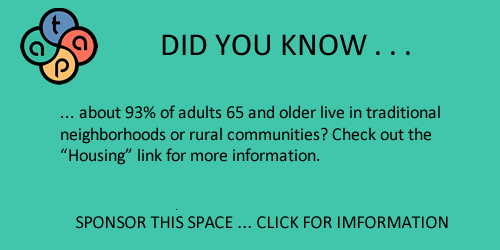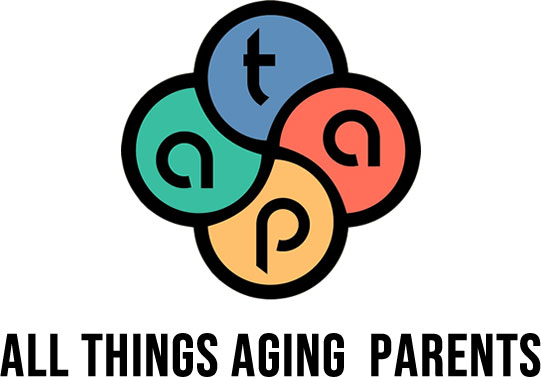Previous Insights
Advocating for Your Parents - Part 1
Marianne Smith
My parents lived with me for 8 years, and then for the next 3 ½ years, I was their caregiver in other communities. Even with all that experience, it wasn’t until recently that I learned that what I was doing was advocating for them. My day job is with an organization in which “advocacy” has a whole different context, so it was surprising to hear the word used in the sense of aiding and assisting our parents. But there are a lot of synonyms for “advocating” that describe what we do: encouraging, recommending, supporting, advising, arguing for, even blessing.
Providing that assistance sometimes requires another skill of advocacy, being a negotiator. We have all learned (often the hard way) that we cannot simply tell our parents what they must do. Sometimes people talk about parenting their parents as if it’s sort of a role reversal, but your parents never lose their position as your parents, and will always deserve the same dignity and respect even if you’re having to perform the same caregiving tasks as you would a child. They are not children, and we cannot force them to do anything. So we ease into the amount of assistance we can offer our parents.
In the same way as a lawyer-advocate needs to know the truth in order to properly defend his/her client, we need to have access to the truth about our parents, especially in the most sensitive issues of health and finances. Of course, this is tricky! How many times have you heard, “It’s nobody’s business but mine!” Starting the conversation is the key. You might work a natural reference into the conversation, “I was reading this article about problems people can face as they get older, and it got me thinking about you.…Have you decided who would make decisions for you if you weren’t able to?” However you start the process (here are some ideas about how to educate yourself), you will need to know as much as you can about their health issues and finances.
All of these recommendations are predicated on you having the proper authority to know about their health and finances. Hopefully, your parent does have a Medical Power of Attorney that enables you to make decisions for them if they are unable to. If not, you need to work toward that as soon as possible. But even before that, you can ask your parent to list you with their doctors as someone who is allowed to receive information about their condition. (This disclosure of personal health information has to do with HIPAA requirements.) One way to encourage them to have this in place is to use the line of “I want to be able to help you if and when the time comes.”
Part of your job as an advocate for your parents will require you to know where to find certain things, in the event of an emergency. My go-to information keeper was my cell phone’s Notes app. You will need to have a list of all of their doctors and phone numbers. And you will want a list of all of their medication, the dosage, and when they are taken. As well as in my phone, I always kept a hard copy in my wallet and my parents’ wallets for easy reference. It may even be helpful to have a physical description (or photo) of each medication in case (s)he becomes forgetful.
Ideally, you will build a relationship with either their doctor or another of their health
care workers as you accompany your parent to their appointments – they can be an invaluable ally in getting answers to your concerns about their health issues, or assisting you to get your parents to comply with the doctor’s instructions. Be careful, though, something that happens way too often is that if you accompany your parent the doctor talks primarily to you. One way you can advocate for your parent is to shift the focus back to your parent – they are the patient, they should be the one answering the questions unless they need your assistance. Sometimes, especially if your parent has dementia (or you suspect that), you may need to bring things to the doctor’s attention. You can still do this in a way that keeps the focus on them, for example, “Mom, do you think you need to mention to the doctor that time that…?” Or, “You wanted to remember to tell the doctor about how high your blood pressure has been.” If you have a good relationship with the doctor and/or staff, you can write a letter before your parent’s appointment detailing your concerns. A good doctor will address these issues in the appointment as if they are his/her own questions, without throwing you under the bus. (This was my absolute lifeline in caring for my parents!)
So for those of us who operate on lists, here’s one to get you started on medical advocacy for your parent:
- Start the conversation with your parent to enable you to learn the personal details about their health and finances.
- Learn as much as you can about their diagnoses, treatment, and options. (Google is your friend.)
- Ask your parents to add you to their disclosure of personal health information at each doctor’s office.
- Be sure that your parents put into place a Medical Power of Attorney.
- Keep a list of doctors, phone numbers, and medications somewhere easily accessible.
- Build relationships with your parent’s doctor, staff, or other health care workers, and COMMUNICATE your concerns.
The American Association of Retired Persons (AARP) describes the role of an advocate as an individual who will “ensure the best life possible for our family and friends when they are vulnerable.” This is a good description of what we want to do with our parents. In future articles we will discuss how to help in the area of finances and some personal issues. We want to be equipped to be the best possible advocates for those who have advocated for us throughout our life.


The information contained in this website is provided as a service to the Internet community, and does not constitute legal or medical advice. All Things Aging Parents works to provide quality information, but we make no claims, promises or guarantees about the accuracy, completeness, or adequacy of the information contained in or linked to this website. Information should be researched and used in light of the specific circumstances of each case. Because laws and policies are constantly hanging, nothing provided here should be used as a substitute for professional advice.
Senior care is a challenging and constantly changing topic. In order to stay relevant to your needs, ATAP welcomes your comments and suggestions. Please email us at: info@allthingsagingparents.com
All Things Aging Parents helps families during the overwhelming times of changing family dynamics and responsibilities. We don't want to add stress to this process so we offer our information free of commitment. Our sponsors make this possible. Please click here for more information about becoming a sponsor.
Privacy Policy

